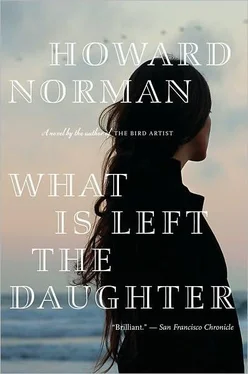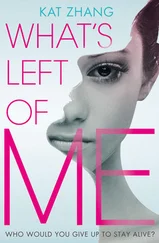When I read a report card, if a teacher's comment was in the least critical, I railed against it, though for all I knew it might've been accurate. For instance, I've just taken out a report card from when you were eleven years old: Marlais Hillyer is intelligent — sometimes there's too much emphasis on words. Very good recall of facts — sometimes a rather snippy tone. Frequently laughs to herself — this puts fellow students off. Bold opinions—"If I started to ride horses, I'd probably stop admiring horses so much." At times offers theatrical, morbid excuses for being lazy—"Mother says if you assign me to sharpen pencils again, she'll swallow poison." Arithmetic — below standard. Excellent reader but possessive about it—"I read a lot of books but you'll never know their titles." Enthralled with her own contradictions — does poorly in Danish lessons, yet makes certain her teachers hear her speaking it quite fluently on the playground.
After your mother died, you began to write letters to Cornelia, though I imagine you were too young to remember — do you? — what she looked like. Or that you licked frosting from an outsized wooden spoon in her bakery, or that she took you for walks, or that you and Cornelia spent hours drawing with crayons. Of course, writing her letters was picking up where your mother left off, though I'd bet my last nickel you had your own flair for it, Marlais.
Anyway, you kept Cornelia up to date, and in turn she kept me up to date about my daughter. "Secondhand news, sure," Cornelia would say, "but whose fault is that? Count your blessings it's news of Marlais at all." This past September I learned that you'd taken a summer course and graduated from a two-year degree program in library science at Trinity College, Dublin. Graduated at the top of your class! Reading of that, I was allowed only a distant pride, but it was pride nonetheless. My goodness — Nova Scotia, Denmark, Ireland — you've already seen the world.
Three-thirty, four, four-thirty, five in the morning, still April 11. I've just made coffee. Dawn light touching the window, the glass beaded up from last night's rain. Insomnia — the mind jumps around a bit. Just last week I was walking home with Tom Blackwell and Hermione Rexroth. We'd accomplished ten hours of gaffing in rough waters, eight of those mainly along Queen's Wharf, but also as far out as the mouth of Halifax Harbor. Add to that two hours of overtime across to Dartmouth. After work, it was still raining at a windy slant and so we kept our rain gear on. It was dark out, streetlamps were like frozen pale explosions in the mist, and we were heading to Rigolo's Pub. At one point, Hermione wanted to light a cigarette, and we found ourselves standing in front of a place called Museum Gallery. The window announced PHOTOGRAPHS OF WAR BRIDES.
"Hey, fellas," Hermione said, "let's stop in and take a look."
After a few deep draws, Hermione tossed her cigarette in the gutter and Tom and I followed her into the gallery. It was one big room painted white. There were five floor lamps and three woven rugs, the attempt being to make it like somebody's living room. There was a sizable crowd, people milling about, the women quite gussied up, some of the men wearing tuxedos. Fashion-wise, Hermione, Tom and I certainly stood out. There was a table with a white tablecloth, wine glasses, bottles of wine. "This is a fancy event," Hermione said.
"At least we didn't just gaff in sacks of fertilizer, like last week," Tom said, "or this gallery might've quickly lost some clientele, eh?"
"I didn't know you spoke French," Hermione said to Tom. "Isn't 'clientele' French?"
Tom looked at a wall of photographs. "Here I'm forty-five and still hoping to find a wife," he said. "But the women in these photographs are all taken."
"I bet that's where the word 'brides' comes in," Hermione said, grinning and handing Tom a glass of wine.
There were fifty-five photographs on exhibit. First thing I looked at was a chronological sequence consisting of four photographs, which followed a particular British woman — most of these war brides were from Britain, a smaller number were from France, a few were from Italy and Holland — from the moment she stepped from the gangway of the Pasteur, a luxury liner that had been converted into a warship, to her first meeting with her future husband, to their wedding, to being carried over the threshold. The caption to this sequence was "British sweetheart to Canadian wife in less than an hour."
Everyone on our crew had seen thousands of women at the rails of ocean liners —Aquitania, Mauretania, Queen Elizabeth, Queen Mary, Ile de France, Lady Rodney, Pasteur— we'd looked up at them just hours before they became legal brides on paper. We'd seen military personnel escort each woman down the gangway and onto the dock — some had children with them — their baggage carried by soldier escorts, too. It was dignified.
I wandered about and came to a photograph of a woman looking lost and bewildered, with a forced smile if ever I saw one. The caption read, "Pale homesickness will soon give way to rosy blush of love as war bride meets love of her life." When Hermione joined me in front of this photograph, she read the caption and remarked, "Now, you ask me, that woman left the love of her life in — where's she from?"
"Edinburgh, it says."
"Look at her face — I'm convinced of it. She left the love of her life in Edinburgh."
"How can you tell?" I asked.
"I can tell," she said. "I look at that photograph and you know what I wish her? I wish her some kindness and possibly children. Here she's traveled to Canada — seasick at least half the nautical miles, probably — and what's she in for? Imagine stepping off that ship and spying some bloke at the dock only bears a slight resemblance to the photograph he'd sent, and thinking — probably it's like a screaming prayer in the head: Please, God, don't let that be him!"
"You figured all that out from just this one photograph, right?"
"Okay, I suppose I had a predisposition, you might say."
I liked Hermione a lot. She was good, honest company. "I'm going to get a carrot stick with cream cheese, Wyatt. I'll meet you by that big picture over there," she said.
It was the largest photograph on exhibit. In it, a doctor posed facing the camera. He stood next to a woman, about age thirty, who looked humiliated and proud in equal measure. She also stared into the camera. The doctor was holding a stethoscope to her chest, though she had on an overcoat. The caption read: "With great care, Dr. Roald Ivy lovingly treats a French immigrant as if she is already a Canadian citizen."
Hermione stepped up and said, loudly, "My God, that's Mona!"
"You know this woman?" I asked. I inspected the woman's face closely.
"Tom!" Hermione shouted across the room, drawing lots of attention. "Tom, come over here!" As Tom walked over, Hermione touched her friend's face on the photograph. "Tom, this is Mona d'Ussel! This is my friend Mona d'Ussel! She's my neighbor," Hermione said, "catty-corner from me on Bliss Street."
"So you say," Tom said.
I thought Hermione was going to give Tom every nasty word just for doubting her. But she said, "All right, let's go to her house. Right now."
"What about Rigolo's?" I said.
"Rigolo's is open till one A.M.," Hermione said, buttoning up her rain slicker.
"Looking at this photograph," Tom said, "one thing I know for certain. Dr. Ivy here's a quack. He can't hear her heartbeat through that thick an overcoat."
"I'll take that under consideration," Hermione said. "Next time I'm in the market for a personal physician, it won't be Dr. Ivy."
The rain hadn't let up in the least, but Hermione was determined to show us what was what. She was fuming at Tom, and made me walk between them the whole way to 45 Bliss Street, which was about ten blocks. "This is Mona's house," Hermione said. "As you can see, my own house is over there across the street."
Читать дальше












